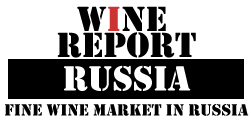The castaway market
In the second half of 2011 I was consulting a well-known British wine merchant. The topic was entering into business with the Russian wine distributors and have wealthy Russians buy wine stocks and hold them in Britain — an understandable desire.
It is widely known in Russia that the best wine distributors in Russia are usually those who actually import wines themselves. So, it’s kind of a vertically integrated business structures — one department imports wines, other department sells wines, and another one promotes and markets wines. Another company or department might be a structure owning a network of wine shops, but this is not a necessary thing.
The mere nature of this interest from the British side was the desire to make business on those wealthy Russians who are wise enough to be aware about the price margins they pay when they buy expensive bottles in the country. Yes, it usually is minimum 50% higher than you expect to pay in Europe, even in restaurants. This figure becomes completely volatile when we move away from Moscow where savvy consumer restrain those margins from skyrocketing.
What the British didn’t consider seriously was the amount of government control and beaurocracy involved in any Russian business, as well as the economy instability and political situation that pushes business risks in the country to heaven. I might say that the resulting extra margins one can make in Russia are what often attract foreign investors to the country. Yet, wine business seems to be one of the most regulated and hard to deal with in Russia.
After some meetings with the importers we seemed to find several major problems in regard to supplying wines from UK to Russia: first of all, weak legal basis and competence of Russian wine importers’ lawyers — they know how to work in the Russian market but they usually have no idea how to build international contracts with third parties (not direct wine suppliers like negociants in Bordeaux). Russian import legislation requires lots of documents to support any bottle entrance and you cannot send a bottle via DHL or any service of that kind.
Secondly, wine importers here would rather prefer less headache and maybe less money than establishing a brand new service for their clients wishing to buy wines abroad — but with lots of paperwork and worries about keeping the client. At last we can imagine that a wealthy person would finally decide to exclude a middleman from the chain. This also corresponds with the competence of the sales staff that is simply not ready to deal with such cases on the regular basis.
And, third, Russian consumer is still buying wines for immediate drinking in 99% of cases rather than for the purpose of laying down. There are, of course, big cellars here — bit these people are usually kept by the wine importers as their golden reserves and the contacts are held in top secrecy. Afterwards, maybe they prefer to buy wines at much higher prices and have much less choice, but to have a good local supplier who speaks their language.
